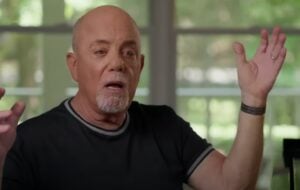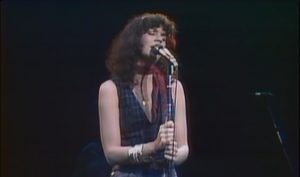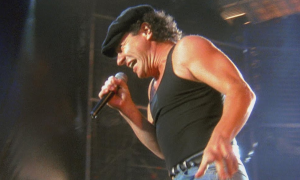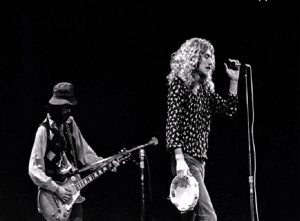The Reason There Was No Funeral For John Lennon

via @Rui Angelo A. Sampilo / YouTube
When John Lennon was murdered outside his New York City apartment on December 8, 1980, the world was paralyzed with grief. Fans, fellow musicians, and world leaders paid tribute to the former Beatle whose influence on music and peace activism left a permanent mark. But as the shock wore off, another question began to surface—why was there no funeral?
Funerals, especially for public figures, serve as collective moments of mourning. Elvis Presley had one, as did Jimi Hendrix and Janis Joplin. But in Lennon’s case, there was no grand procession, no televised memorial, and no opportunity for fans or peers to gather. Instead, silence filled the void—a ten-minute global moment of reflection, requested by Yoko Ono, Lennon’s widow.
This absence puzzled many, especially considering Lennon’s status as one of the most iconic musicians of the 20th century. Over the years, speculation has grown around why such an unconventional decision was made. While no definitive answer has ever been confirmed, the reasons seem to lie in a mixture of philosophical belief, personal preference, and the people he left behind.
View this post on Instagram
A Quiet Departure
After Lennon’s assassination, his body was transported discreetly from the morgue to the Frank E. Campbell Funeral Chapel in New York, and then to Ferncliff Mortuary in Hartsdale for cremation. The process was private, carried out without the presence of extended family, former bandmates, or the public. It was a striking contrast to what one might expect for a global icon.
Sean Lennon, John’s son, was reportedly not allowed to attend the cremation. The reasons for this remain unclear, though they’ve stirred confusion and even resentment among some fans and family members. The details of this intimate farewell were never publicly outlined, and John left no instructions in his will regarding how he wished to be laid to rest.
Yoko Ono, the sole inheritor of his estate, was left to make the final decisions. Whether her choices reflected John’s wishes or her own instincts, we may never know. But it’s clear that privacy, control, and emotional safety were prioritized over tradition. This marked the beginning of a different kind of mourning—one that was internal, not ceremonial.
Lennon’s Philosophy on Death and Religion
John Lennon’s complicated views on religion may have played a major role in the absence of a formal funeral. Known for challenging the establishment and famously stating that The Beatles were “more popular than Jesus,” Lennon’s discomfort with organized religion was well-documented. That aversion likely extended to religious rituals, including funerals.
Yoko Ono may have interpreted this worldview as a rejection of traditional rites altogether. Some believe her decision to forgo a funeral reflected a desire to honor Lennon’s lifelong skepticism of dogma and institutional control. Instead of clergy, coffins, or scripture, his legacy would be celebrated through silence and remembrance.
Additionally, Lennon was deeply critical of fame and its machinery. He might have feared that a public funeral would turn into a spectacle—one where grief was commercialized, photographed, and distorted. For a man who spent much of his later life retreating from the public eye, such an outcome may have felt like a betrayal of his values.
View this post on Instagram
The Unwanted Spectacle in Liverpool
Despite the absence of a formal funeral, a memorial service did eventually take place—but not without controversy. On March 30, 1981, Liverpool Cathedral hosted the “Festival of Peace,” attended by over 2,000 people. The event, initiated by the Lord Mayor of Liverpool, blended religious and secular elements in a way that felt foreign to Ono’s intentions.
The Guardian described the service as an awkward mix of pageantry and pop culture: robed clergy alongside jean-clad meditators, and a radio DJ whose name was literally stitched into his sweater. It was a hybrid Lennon likely would have cringed at—a public display straddling the line between tribute and theater.
More disturbingly, the Dean of Liverpool used the platform to denounce the punk movement and mourn the death of flower power. His sermon veered sharply into moral and political commentary, blaming youth culture for society’s decline. For those who had hoped the service would reflect Lennon’s ideals, it came off more like a cautionary tale about how quickly personal legacies can be co-opted.
View this post on Instagram
Mourning on Lennon’s Terms
In the end, the absence of a funeral may have been the most authentic way to remember John Lennon. His life was defined by rebellion against conformity and a refusal to follow the script laid out for him. A conventional funeral might have muted that spirit, replacing complexity with ceremony.
Yoko Ono’s decision to invite the world to participate in ten minutes of silence offered a more universal, egalitarian form of grief. It wasn’t confined to a church or a cathedral, nor was it filtered through religious doctrine. It was something anyone, anywhere could join—a quiet farewell fitting for a man who once sang, “Imagine there’s no heaven.”
While questions linger about the exclusion of friends and family from his cremation, it’s likely that Ono was doing what she thought John would have wanted. No spectacle. No sermon. Just peace. Whether or not that choice brought closure, it certainly preserved the mystery and message of one of music’s most revolutionary figures.
View this post on Instagram











